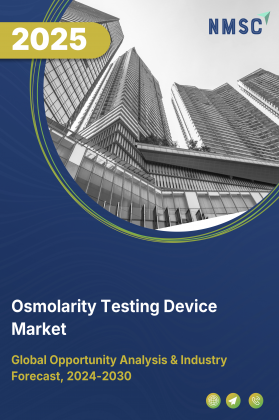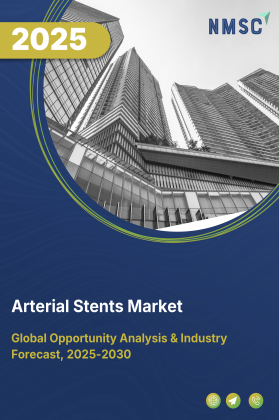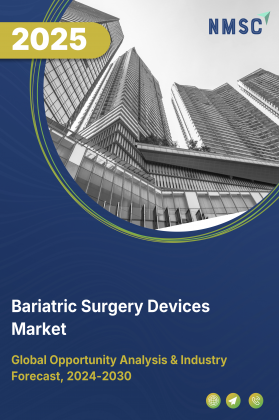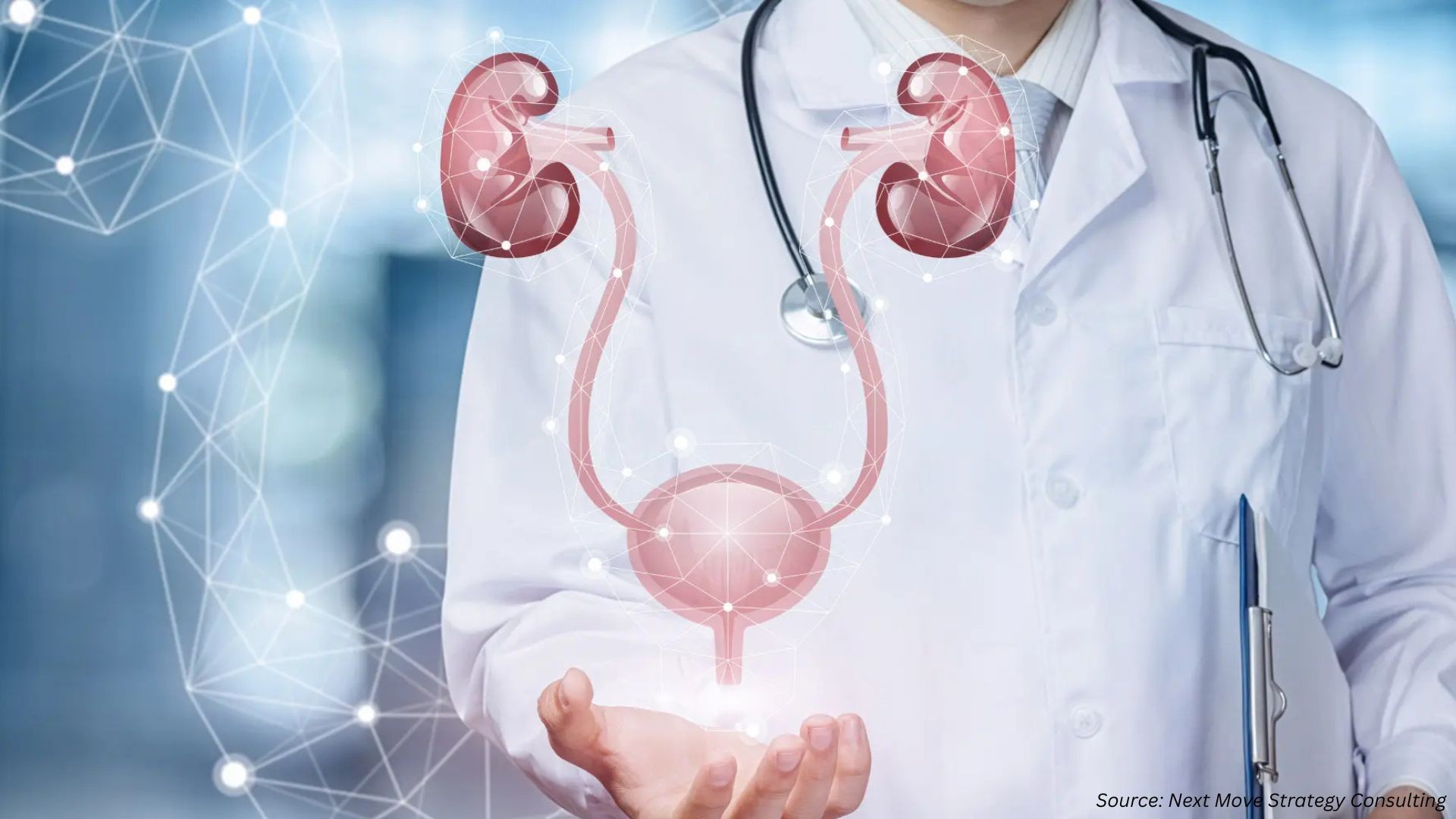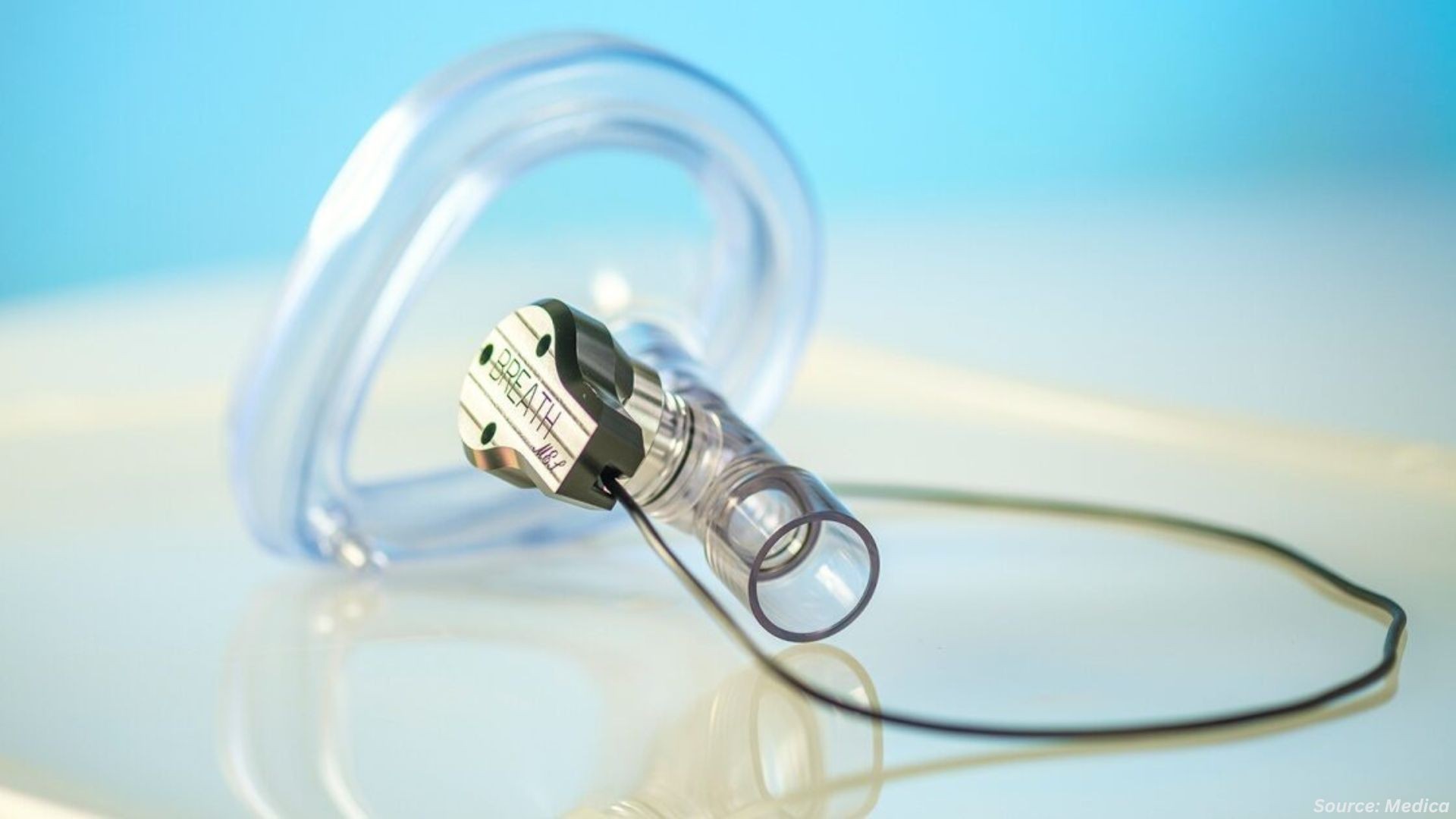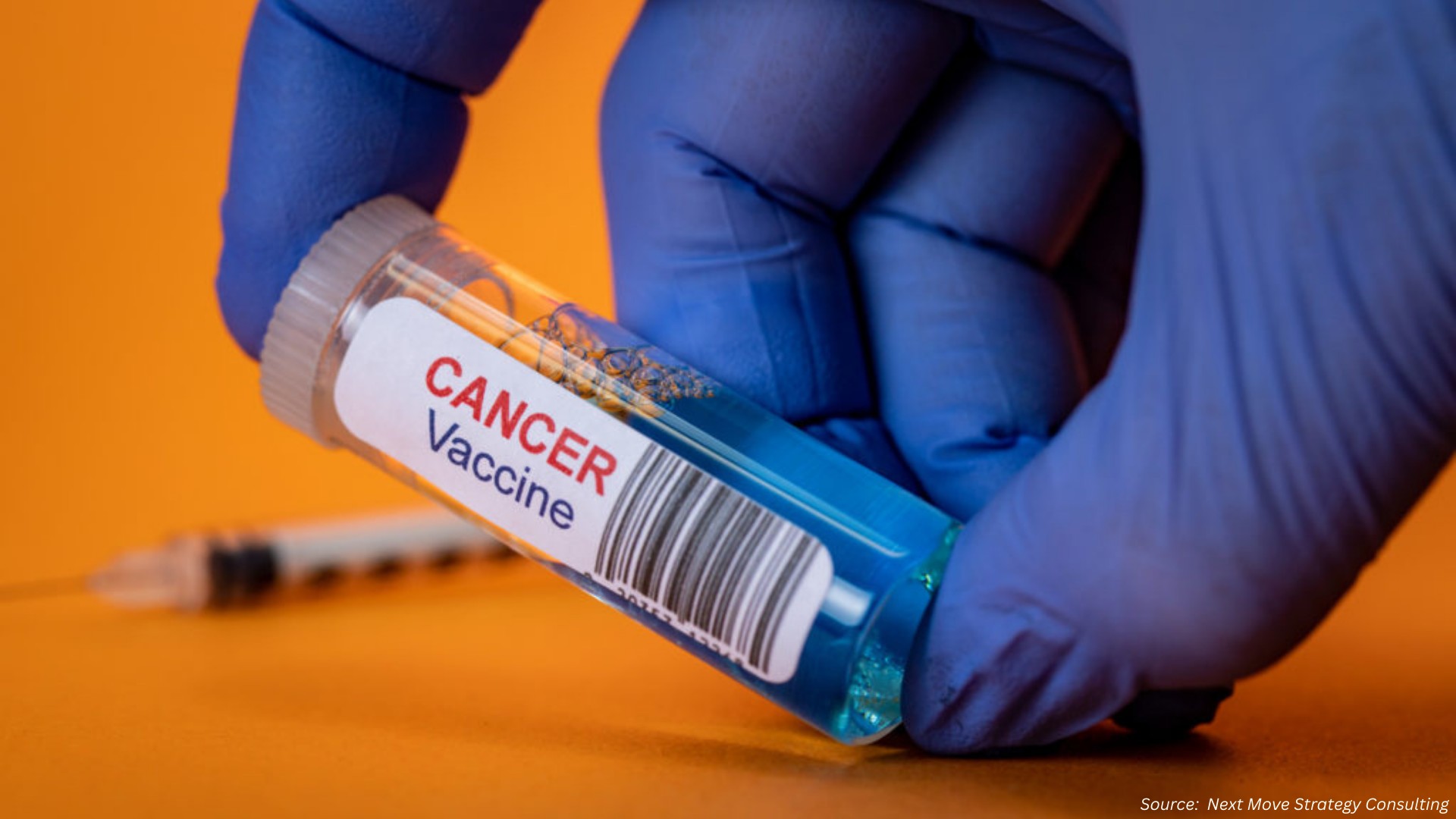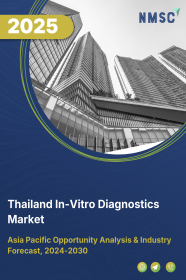
Thailand In-Vitro Diagnostics by Product & Service (Reagents & Consumables, Instruments & Devices, and others), by Technique (Clinical Chemistry, Immunoassays, Molecular Diagnostics, and Others), by Testing Site / Channel (Central & Reference Laboratories, Hospital & Physician Labs, Point-of-Care & Retail, and others), by Application / Disease Area (Infectious Diseases, Oncology, Cardiovascular Health, and others)– Opportunity Analysis and Industry Forecast, 2024–2030.
Industry: Healthcare | Publish Date: 24-Sep-2025 | No of Pages: 173 | No. of Tables: 144 | No. of Figures: 89 | Format: PDF | Report Code : HC2365
Thailand In-Vitro Diagnostics Market Overview
The Thailand In-Vitro Diagnostics Market size was valued at USD 1.03 billion in 2023, and is predicted to reach USD 1.63 billion by 2030, at a CAGR of 6.3% from 2024 to 2030. In-vitro diagnostics (IVD) refers to a wide range of medical tests conducted on samples of bodily fluids, tissues, or cells outside of the body to diagnose diseases, monitor therapy, and assess overall health conditions. These tests are performed in laboratory settings using various techniques and technologies, including immunoassays, molecular diagnostics, clinical chemistry, hematology, and microbiology.
These tests enable early detection of diseases, allowing for timely intervention and treatment initiation. By providing rapid and accurate results, IVD tests facilitate personalized medicine, guiding tailored treatment approaches based on individual patient characteristics.
Also, in-vitro experiments provide valuable insights into biological systems, enabling scientists and researchers to make significant contributions to fields such as medicine, biotechnology, and pharmacology. They serve as essential tools for understanding fundamental biological processes and developing innovative solutions to address health challenges.
Growing Burden of Chronic Diseases and an Aging Population Fueling Diagnostic Demand
A primary driver for Thailand's IVD market is the increasing prevalence of non-communicable diseases (NCDs) like cancer, diabetes, and cardiovascular conditions, which account for a significant portion of annual deaths. This, combined with a rapidly aging population where nearly 20% are over 60, creates a sustained demand for routine monitoring and early disease detection. Government health initiatives promoting preventive care further amplify the need for accessible and accurate diagnostic solutions across the country.
Government Initiatives and Healthcare Infrastructure Modernization
The Thai government's commitment to improving healthcare access and quality is a significant growth driver. Policies under the "Thailand 4.0" framework and investments in the Eastern Economic Corridor (EEC) are aimed at enhancing domestic medical device manufacturing and modernizing healthcare infrastructure. The Universal Coverage Scheme (UCS) ensures broad access to essential diagnostics, while the push for digitalization and adoption of advanced technologies like AI and molecular diagnostics in public and private hospitals supports market expansion.
Complex Regulatory Landscape and Inconsistent Reimbursement Policies
The adoption of advanced IVD technologies in Thailand is hindered by a complex regulatory environment and fragmented reimbursement policies. While basic diagnostic tests are covered under the national health system, reimbursement for newer, high-cost assays like molecular and genetic tests remains limited and subject to bureaucratic hurdles. These financial and regulatory challenges can slow the adoption of innovative diagnostic platforms, particularly in smaller healthcare facilities and rural areas.
Expansion Of Point-of-care And At-home Testing In A Decentralizing Healthcare Model
There is a significant opportunity in the expansion of point-of-care (POC) and direct-to-consumer (DTC) diagnostics. Driven by a tech-savvy population and the growth of telemedicine, there is rising demand for convenient, at-home testing for chronic disease management, infectious diseases, and general wellness. This shift toward decentralized healthcare creates new market avenues for manufacturers to provide user-friendly, approved self-testing kits, which can improve healthcare access in remote areas and support a more patient-centric approach to health management.
Competitive Landscape
The promising players operating in the Thailand in-vitro diagnostics industry include Roche Diagnostics (Thailand) Ltd., Abbott Laboratories, Siemens Healthineers, Thermo Fisher Scientific (Thailand) Co., Ltd., Beckman Coulter Diagnostics, Sysmex (Thailand) Co., Ltd., Becton, Dickinson and Company (BD), BioMérieux Thailand Ltd., Ortho Clinical Diagnostics (Thailand) Ltd., QIAGEN Thailand, Mindray Medical (Thailand) Limited, Bio-Rad Laboratories, Fujirebio Inc., HORIBA Limited, SEKISUI Diagnostics Southeast Asia, and others.
Thailand In-Vitro Diagnostics Market Key Segments
By Product & Service
-
Reagents & Consumables
-
Clinical Chemistry Reagents
-
Immunoassay Reagents (ELISA/CLIA)
-
Molecular Master Mixes
-
Hematology Controls
-
-
Instruments & Devices
-
Chemistry Analyzers
-
Immunoassay Systems
-
Molecular Thermocyclers/Sequencers
-
Hematology Analyzers
-
POC Devices
-
-
Software & Services
-
LIS, Data Analytics
-
CRO/Testing Services
-
By Technique
-
Clinical Chemistry
-
Metabolites
-
Electrolytes
-
Enzymes
-
-
Immunoassays
-
ELISA / CLIA / CMIA
-
Lateral-flow Rapid Tests
-
Immunofluorescence
-
-
Molecular Diagnostics
-
PCR
-
Isothermal NAAT
-
NGS
-
In-situ Hybridization
-
-
Hematology & Coagulation
-
CBC Analyzers
-
Coagulation Panels
-
-
Microbiology
-
Culture & Sensitivity
-
MALDI-TOF
-
Molecular ID
-
-
Urinalysis & Body Fluids
-
Other Techniques
By Testing Site / Channel
-
Central & Reference Laboratories
-
Hospital & Physician Labs
-
Point-of-Care & Retail
-
Home & Self-Testing
By Application / Disease Area
-
Infectious Diseases
-
Oncology
-
Cardiovascular Health
-
Endocrinology & Diabetes
-
Nephrology
-
Genetic & Prenatal Testing
-
Autoimmune Disorders
-
Drug Monitoring & Toxicology
-
Blood Screening & Typing
-
Other Indications
KEY PLAYERS
-
Roche Diagnostics (Thailand) Ltd.
-
Abbott Laboratories
-
Siemens Healthineers
-
Thermo Fisher Scientific (Thailand) Co., Ltd.
-
Beckman Coulter Diagnostics
-
Sysmex (Thailand) Co., Ltd.
-
Becton, Dickinson and Company (BD)
-
BioMérieux Thailand Ltd.
-
Ortho Clinical Diagnostics (Thailand) Ltd.
-
QIAGEN Thailand
-
Mindray Medical (Thailand) Limited
-
Bio-Rad Laboratories
-
Fujirebio Inc.
-
HORIBA Limited
-
SEKISUI Diagnostics Southeast Asia
REPORT SCOPE AND SEGMENTATION:
|
Parameters |
Details |
|
Market Size Value in 2023 |
USD 1.03 billion |
|
Revenue Forecast in 2030 |
USD 1.63 billion |
|
Value Growth Rate |
CAGR of 6.3% from 2024 to 2030 |
|
Analysis Period |
2023–2030 |
|
Base Year Considered |
2023 |
|
Forecast Period |
2024–2030 |
|
Market Size Estimation |
Billion (USD) |
|
Growth Factors |
|
|
Companies Profiled |
15 |
|
Customization Scope |
Free customization (equivalent up to 80 working hours of analysts) after purchase. Addition or alteration to country, regional, and segment scope. |
|
Pricing and Purchase Options |
Avail customized purchase options to meet your exact research needs. |

















 Speak to Our Analyst
Speak to Our Analyst



